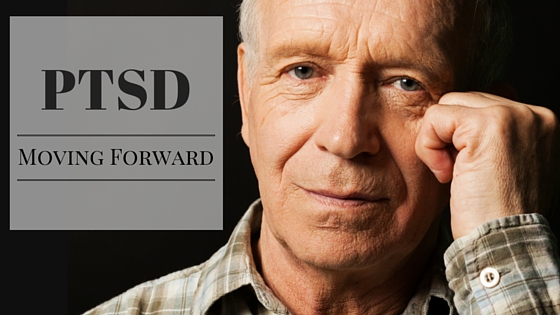In our final installment in our series on Posttraumatic Stress Disorder (PTSD), we’re covering the treatment of this condition. If you missed our recent posts on PTSD, check them out: the “Basics” of PTSD, risk factors of PTSD, and a useful screening tool for PTSD.
Today, we’ll review common questions, as detailed by the National Center for PTSD, followed by common treatment options.
COMMON QUESTIONS ABOUT TREATMENT:
Can a therapist really understand what I’ve been through?
Therapists can treat your PTSD whether or not they have been through trauma themselves. What’s important is that your therapist understands how you think about your experience, so she can teach you the skills you need to manage your symptoms.
Is it ever too late to get treatment for PTSD?
It’s never too late. Treatment can help even if your trauma happened years ago. And treatment for PTSD has gotten much better over the years. If you tried treatment before and you’re still having symptoms, it’s a good idea to try again.
What if I don’t feel ready for treatment?
It’s normal to feel like you’re not ready for treatment, or to come up with reasons why now isn’t the right time — like you can’t afford it or you’re too busy. But not wanting to talk or think about the trauma can actually be a symptom of PTSD.
You may never feel truly ready to get help for PTSD — but if you’re having symptoms, it’s better to get treatment now than to wait. The sooner you get treatment, the sooner you can start to feel better.
What happens during PTSD treatment?
Your therapist or doctor will start by talking with you about your PTSD symptoms and your treatment options. Once you’ve chosen a type of treatment, she’ll explain what will happen, how it will help you feel better, and why it works. Remember, you can always ask questions about your treatment.
WHAT ARE COMMON TREATMENT OPTIONS FOR PTSD?
Early treatment is best. Ideally, the victim of trauma should receive supportive treatment at the earliest possible time. Victims benefit from the support of their family members, friends, and mental health professionals. The most important element of any treatment plan is to create a sense of safety.
Individual psychotherapy. A therapist that specializes in working with victims of trauma can help the patient talk about the event. The patient can also be encouraged to write about it. The therapist may use behavior modification techniques and cognitive therapy to alleviate the person’s fears and worries.
Family therapy. The entire family is affected when a person experiences trauma. A skilled family therapist can help family members provide support for the victim and deal with their own feelings.
Support groups. A support group can be very healing when it includes others who share similar experiences and who struggle with similar problems.
Cognitive behavioral therapy. Supportive psychotherapy may be essential for one that has experienced trauma. The cognitive behavioral approach is shown to be helpful in treating some PTSD symptoms.
Eye movement desensitization reprocessing (EMDR). A fairly new therapeutic tool, EMDR is shown to be effective in treating victims of trauma. A licensed, experienced therapist trained in this technique may be able to relieve the symptoms of PTSD.
Relaxation training. Since many victims of trauma have a difficult time relaxing, special training to promote relaxation may be helpful.
Physical exercise. An active exercise program can be an excellent way to relieve stress.
Medication. Antidepressant medications can help to relieve symptoms of depression and anxiety, and they may also encourage sleep.
Family and individual therapy services can be helpful as you begin to treat PTSD or similar conditions. At TherapyWorks, our experienced therapists can help you implement relevant and effective solutions that you’re looking for.
And because convenience is important, our professional and responsive support team offers convenient scheduling options, evening and weekend appointments, and contemporary privacy practices.
We encourage you to take advantage of a free consultation in our Los Gatos or Santa Cruz locations. Contact us today and we’ll help you.
